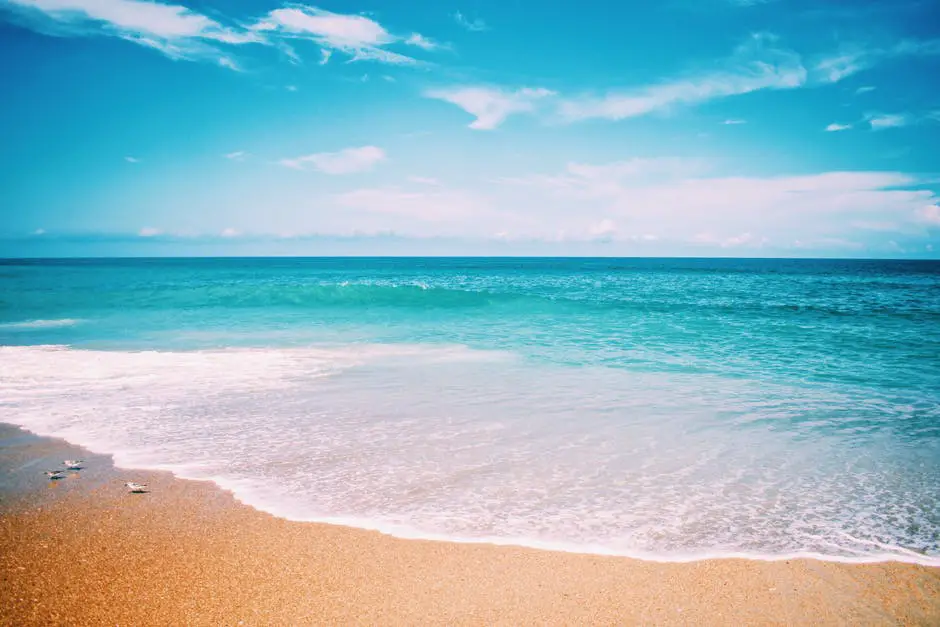
The Atlantic Ocean, the second largest of the world's five oceans, covers approximately 20% of the Earth's surface, with a size of over 41,000 miles in length and 4,000 miles in width. It is located primarily in the Eastern and Northern Hemispheres, extending from the Arctic Ocean in the North to the Southern Ocean in the south and lying between the Americas to the west and Europe and Africa to the east.
The Atlantic Ocean is divided into several regions, including the North Atlantic, South Atlantic, and South Atlantic gyres. The North Atlantic is home to several major currents, including the Gulf Stream, which is a powerful, warm current that transports vast amounts of warm water from the equator toward the North Pole. This current has a significant impact on the climate of the Eastern United States and Europe, helping to moderate temperatures and provide moisture to these regions.
The Atlantic Ocean plays a critical role in global trade and transportation, with major ports located along its coastlines. These ports serve as gateways for the import and export of goods, including oil, natural gas, and container cargo. The ocean is also home to a diverse range of marine life, including fish, mammals, and plants. Some of the most notable marine species found in the Atlantic include bluefin tuna, great white sharks, and leatherback sea turtles.
In recent years, the Atlantic Ocean has faced several environmental challenges, including pollution and overfishing. Pollution from sources such as oil spills, agricultural runoff, and plastic waste have had a significant impact on the health of the ocean and its marine life. Overfishing has led to the depletion of many fish stocks, threatening the livelihoods of those who rely on fishing for their income.
Efforts are being made to address these challenges, including the implementation of stricter regulations on fishing and pollution, the development of renewable energy sources, and the promotion of sustainable practices in industries that rely on the ocean. These efforts are critical to ensuring the long-term health and sustainability of the Atlantic Ocean and its valuable resources.
Features
The Atlantic Ocean is a vast and diverse body of water with many notable features. Here are some of the most significant features of the Atlantic Ocean:
- Size: The Atlantic Ocean is the second-largest of the world's five oceans, covering an area of approximately 41 million square miles (106 million square kilometers).
- Currents: The Atlantic Ocean is home to several major currents, including the Gulf Stream, which transports warm water from the equator toward the North Pole, and the North Atlantic Drift, which carries warm water from the Gulf Stream toward Europe.
- Marine Life: The Atlantic Ocean is home to a diverse range of marine life, including fish, mammals, and plants. Some of the most notable marine species found in the Atlantic include bluefin tuna, great white sharks, and leatherback sea turtles.
- Coastlines: The Atlantic Ocean has a diverse range of coastlines, including sandy beaches, rocky cliffs, and estuaries. Some of the most notable coastlines in the Atlantic include the East Coast of the United States, the Caribbean, and the Mediterranean coast.
- Natural Resources: The Atlantic Ocean contains significant natural resources, including oil, gas, and minerals. It is also home to several major fisheries, including cod, haddock, and tuna.
- Climate: The Atlantic Ocean plays a critical role in regulating the Earth's climate. It absorbs a significant amount of solar heat, which helps to moderate temperatures in the Northern Hemisphere.
- Exploration: The Atlantic Ocean has been explored and mapped extensively, but there is still much to learn about its depths and marine life. In recent years, advances in technology have allowed scientists to explore deeper parts of the ocean, leading to the discovery of new species and geological features.
- History: The Atlantic Ocean has played a significant role in human history, from the Age of Exploration to the modern era of global trade and transportation. It has been the site of many historic events, including the transatlantic slave trade, the sinking of the Titanic, and the D-Day invasion during World War II.
History
The Atlantic Ocean has a rich and complex history that spans millions of years. Here is a brief overview of the history of the Atlantic Ocean:
- Formation: The Atlantic Ocean began to form around 180 million years ago, during the breakup of the supercontinent Pangea. As the continents began to drift apart, the Atlantic Ocean began to form in the space between them.
- Life: The Atlantic Ocean has been home to a diverse range of marine life for millions of years. Fossils of ancient marine reptiles, such as plesiosaurs and ichthyosaurs, have been found in rocks along the Atlantic coast.
- Exploration: The Atlantic Ocean has been explored and mapped extensively over the past few centuries. European explorers, including Christopher Columbus and Vasco da Gama, used the Atlantic to discover new lands and establish trade routes.
- Trade and Transportation: The Atlantic Ocean has played a critical role in global trade and transportation for centuries. European powers, including Spain, Portugal, and England, established colonies in the Americas and used the Atlantic to transport goods and people between the Old and New Worlds .
- Slavery: The Atlantic Ocean was also the site of the transatlantic slave trade, which brought millions of enslaved Africans to the Americas between the 16th and 19th centuries.
- Technology: Advances in technology have allowed humans to explore deeper parts of the Atlantic Ocean in recent years. In 1960, the bathyscaphe Trieste became the first manned vehicle to reach the bottom of the Atlantic Ocean, at a depth of 35,800 feet (10,912 meters).
General:
Posted Using InLeo Alpha